Surviving Flashfloods: When The Rains Turned to Rage in Ondo State
Neglecting climate-conscious practices inevitably leads to devastating consequences, claiming lives and sometimes causing irreparable harm.
By Oluwaseyi Elizabeth Jimoh
Ondo, Nigeria—It was supposed to be a joyful weekend. In Ondo town, Fridays were sacred— a time when classrooms emptied by 1 p.m., markets buzzed into dusk, and the rhythm of “owambe” parties danced through the streets. But on this particular Friday, joy drowned.
At about 4:06 p.m., the skies opened. What began as a gentle drizzle turned into an unrelenting downpour. For residents of Olubusade, Lipakala, Odojomu, and Oduduwa streets, what followed was chaos.
Streets disappeared under rushing waters. Cars bobbed like toys in the torrent. Shoppers stranded at market stalls curled up beside crates of tomatoes, praying. Families were torn apart, trying to reach out via calls. And amid the panic, a man named Ola Tejuola, an okada rider, became a reluctant hero.
He had just finished his day’s hustle when his phone rang. It was his wife— the water was rising fast, and their children were trapped inside their home. Driven by instinct and fear, Mr. Tejuola sped off into the rain, defying pleas from onlookers. He dove into the torrent, hoping to save his family. Moments later, the current swallowed him whole, and his body was not recovered.
A Pattern of Neglect: Flooding in Ondo a Climate Crisis with a Human Face
Mr. Tejuola’s story is tragically not unique. The tragedy highlights the devastating impact of climate change and poor urban planning. In recent years, climate culture habits, beliefs, attitudes, activities and lifestyles continues to impact negatively on cyclic climate changes that has transformed natural rainfall into deadly disaster. What should be blessings of water have become curses of flood.
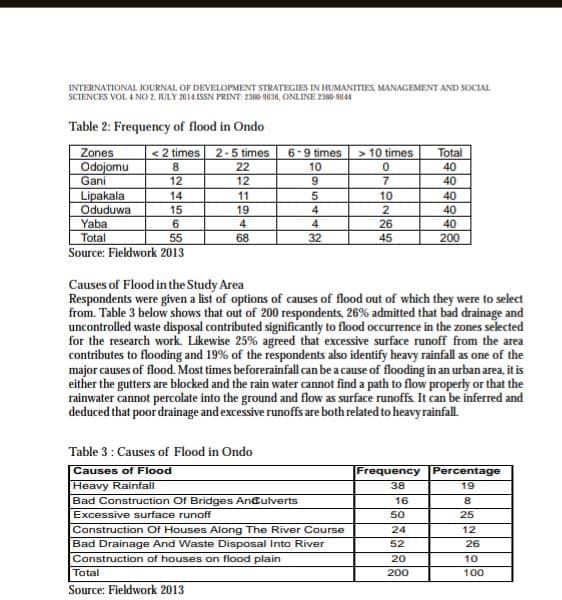
Investigations reveal that the flooding in Ondo town was not an isolated incident. The town’s geography, characterized by undulating hills and a tropical wet and dry climate, makes it prone to flooding. However, it is the neglect of infrastructure and poor urban planning that has exacerbated the problem. The blocked drains and refuse-choked gutters that dot the streets of Ondo town are a testament to the lack of attention paid to the town’s infrastructure.
According to the World Health Organization, floods are now the most common natural disaster globally, affecting over 2 billion people between 1998 and 2017— and that number continues to grow.
In Ondo town, many residents now live with the looming fear of rain. Streets like Olubusade and Lipakala frequently overflow, turning everyday commutes into life-threatening journeys. The 2024 flood was a wake-up call— but also a turning point. In the wake of the devastating floods, this report captures the aftermath of the recent floods, shedding light on the experiences of survivors and the community, highlighting the need for sustained support.
Assessing the flood timelines in Ondo from 2023 to 2025, it highlights the power of early warning systems in place and the role citizens also play in flood prevention and its aftermath:
- 2023:
- Flooding occurred in various parts of Ondo state, including the Oba-Ile neighborhood of Akure, resulting in numerous flooded areas and one reported death. The flooding was caused by heavy rainfall and was predicted by the Nigerian Meteorological Agency (NiMet) in January 2023.
- According to the National Emergency Management Agency (NEMA), over 33,000 people nationwide were impacted by the flood disaster, with significant economic damage estimated at $9 billion USD in economic damage, as reported by the National Bureau of Statistics.
- 2024:
- In October, the Ondo State Government took proactive measures to prevent flooding, including deploying an Amphibious Excavator to critical erosion-prone areas for dredging. The government also sympathized with residents affected by flash floods in some communities.
- The State Commissioner for Environment, Hon. Oyeniyi Oseni, attributed the flooding to development on waterways and blockage of drains. The government initiated a comprehensive flood mapping exercise to identify flood-prone areas and develop strategies for mitigation
- 2025:
- January-February: NiMet predicted an early onset of rainfall in southern states, including Ondo, with potential for flash floods in coastal cities.
- June 18: Flooding occurred in Peace and Joy community in Oba Ile, Akure North Local Government Area, rendering about 20 families homeless. The flood was caused by the overflow of the Ogijan River.
- July 5: Flooding wreaked havoc in Okitipupa, Okitipupa Local Government Area, displacing residents and causing significant property damage. The flooding was attributed to blocked drains and lack of proper drainage systems.
- August: Ocean surge ravaged several riverine communities in Ilaje Local Government Area, displacing 14,820 residents and submerging 1,820 buildings. The affected communities included Aiyetoro and Abereke, with over 15 km of shoreline lost due to recurring surges
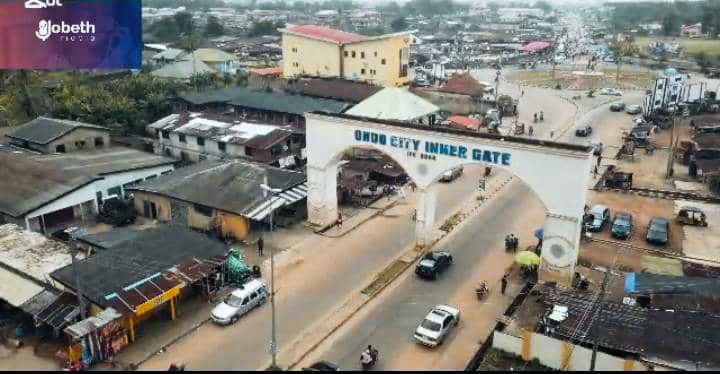
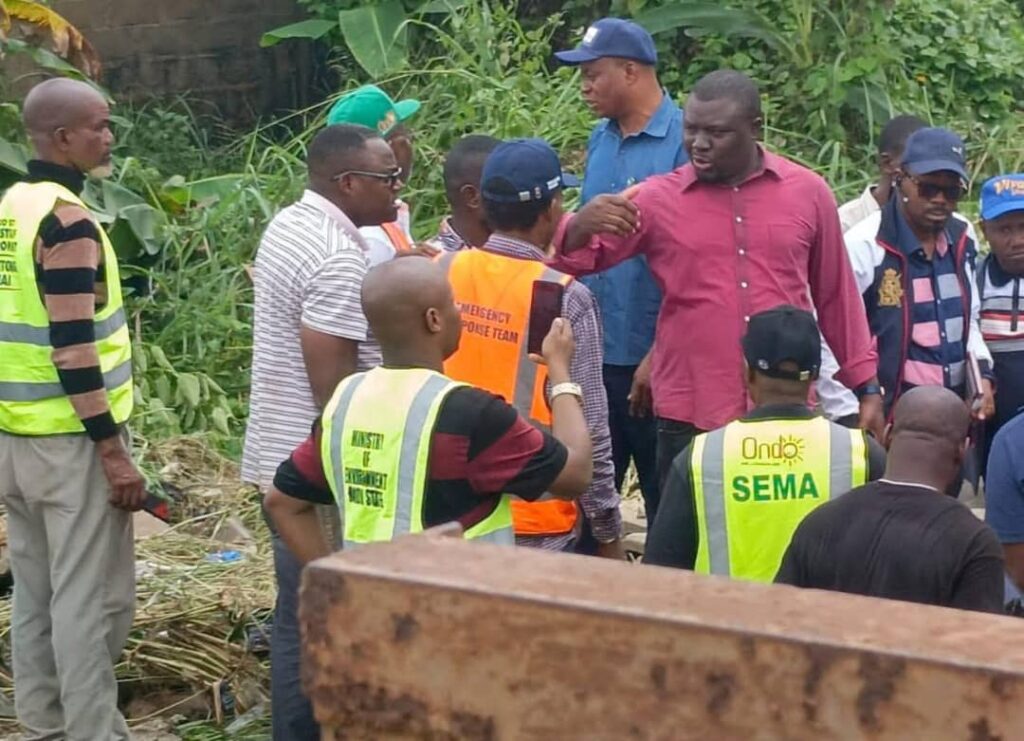
Since 2025, residents in Ondo, despite efforts made to mitigate flooding, continue to experience flash floods that has led to loss of lives and properties. “This was not just about climate change,” said Mr. Sunday Olowokere, a community leader in Olubusade. “Yes, the rains came, but it was our blocked drains, our refuse-choked gutters, that turned rainwater into rage.”
To combat climate culture habits and activities which continues to wreak havoc, community-led efforts have emerged. Groups have taken charge of clearing canal paths, ensuring that drainage channels remain unblocked. A previously choked stream in Lisaluwa has been widened with community and government collaboration— an engineering feat once thought impossible.
“There’s a new consciousness,” Olowokere added. “People now understand that we can’t stop the rain, but we can control the damage.”
The Policy Shift: From Reaction to Prevention
In response to public outcry, Ondo State authorities initiated new directives. The Special Adviser to the Governor on Erosion Control, Elisha Ebijimi, issued strong warnings against indiscriminate dumping in waterways— one of the main culprits behind blocked drainage and flash flooding.
Similarly, this got the attention of the Federal Government as LightRay! Media published how the Nigeria National Assembly during its Plenary, House of Reps, Thursday, July 3rd, 2025 discussed Ondo flood issue where Hon. Donald Kimikanboh moved a motion on the need for the Federal Government to intervene in communities of Ondo state ravaged by flood disasters, stressing the need for urgent intervention of government as the floods which began on the 1st of July has affected three-quarters of communities in the state. He stated that numerous houses, businesses, farmlands and public facilities have been partially or completely damaged by the floods.
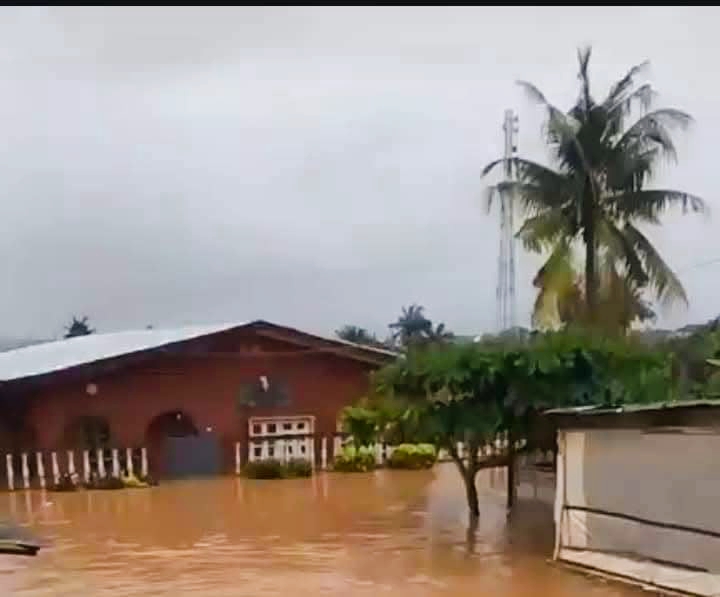
The House of Representative Member called on the National Emergency Management Agency to provide relief for the displaced persons and that the Government should provide special funds to ensure Erosion diversion mechanisms are put in place. He further called on the House Committee on Environment as well as that on Emergency and Disaster Preparedness to ensure compliance. The motion was voted on, adopted and referred to the House Committee on Environment as well as to that on Emergency and Disaster Preparedness.
Experts Advocate for Policy Change to Mitigate Ondo Flooding
As the Ondo community continues to grapple with the devastating effects of flooding, experts are calling for policy changes to mitigate the impact of future disasters. Dr. K.O. Bakare, a researcher from the Department of Geography at Adeyemi College of Education, has conducted a study on the flooding in Ondo town and has provided research-backed recommendations.
According to Dr. Bakare, in “Mitigating the effects of flood in Ondo town, land-use regulation is crucial in preventing construction on floodplains, which can exacerbate the impact of flooding.” He also recommends improved waste disposal systems to prevent drainage blockages, proper urban channelization to expand water flow capacity, and community education on flood risk to empower residents to act early.
In addition, Dr. Bakare explains that while floods are natural, their impact is mostly man-made and thus manageable. Although he emphasized the need for a multi-faceted approach to address the root causes of flooding in Ondo town, developing local innovation through building climate-resilient infrastructure is key.
To build a more resilient future, experts such as Adams Sesan John, an expert on climate and environment, are advocating for “the adoption of flood-resistant buildings, elevated road networks, and early warning systems linked to local radio.”
Additionally, a continuous community-led emergency drills should be implemented to prepare residents for potential floods. According to him, while policy matters, adaptation on the ground is the most urgent frontier. “Flooding is no longer seen as a one-off emergency, but rather as a recurring season that demands proactive measures.”
He also called for a proactive mindset shift. “We must build like we expect it, not like we hope it won’t come.”
However, some efforts have lagged behind. For instance, agricultural resilience strategies such as drought-tolerant crops and climate-smart farming are often misunderstood or poorly communicated to rural farmers. The rejection of these methods is often rooted in a lack of local orientation, not resistance. Effective implementation of these strategies requires a more nuanced approach that takes into account the needs and concerns of local communities.
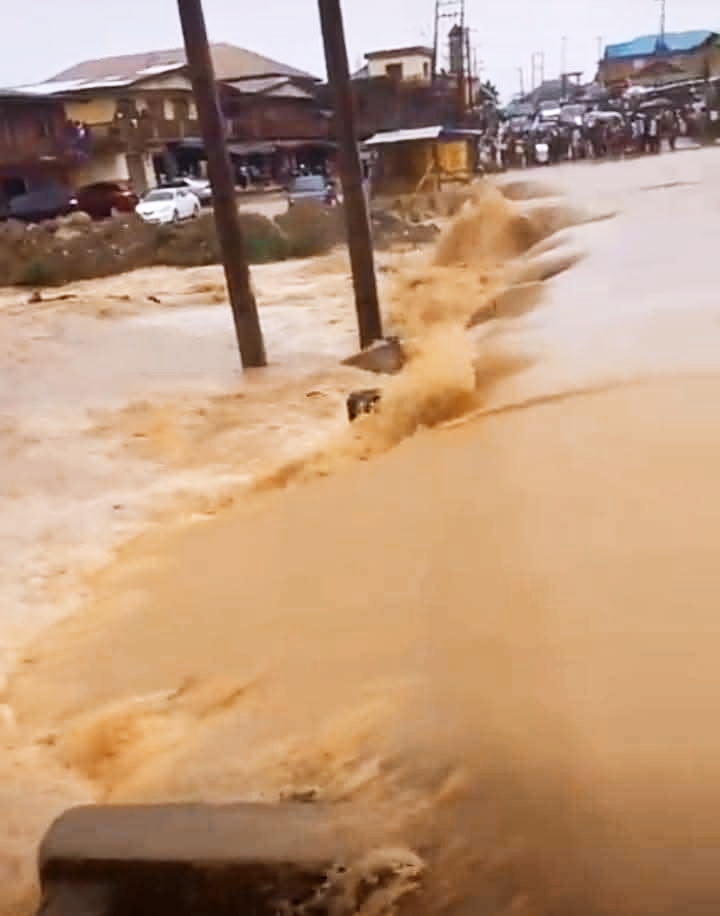
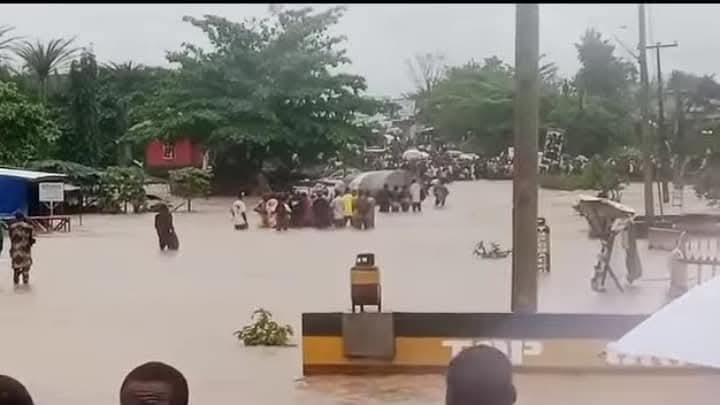
The Human Cost: Beyond the Floodwaters
Beyond infrastructure and policy, the emotional and social costs of flooding are incalculable. Families lose homes, children miss school, businesses collapse under repair costs, and many— like Mr. Tejuola’s— lose loved ones. Potable water supplies are often contaminated, triggering outbreaks of disease. Psychological trauma lingers for years.
“Flooding doesn’t just destroy property. It erodes confidence,” said Adams Sesan John. “You begin to fear the clouds.”
The Power of the Airwaves: Climate Information as a Lifeline
But there is hope— and it often crackles over the airwaves.
Lady Ejiro Umukoro, an Environmental Botanist and climate advocate, insists that community radio must be the new frontline in the battle against climate change and behaviour. With fewer than 30 operational community radio stations in Nigeria, millions remain in the dark, unaware of flood warnings or environmental shifts until it’s too late.
“Broadcasters must go beyond entertainment,” Umukoro said. “They need to become educators, using data from meteorological, NBS, researchers, and agencies to inform and save lives.”
In rural communities where smartphones are scarce, radio remains the most accessible and affordable source of information. In the coming years, expanding Nigeria’s community radio network may prove just as important as building flood-resistant bridges.
A Community Transformed by Water — and Willpower
Flooding in Ondo is no longer just a seasonal inconvenience. It is a climate crisis, as the town falls within the ‘tropical wet and dry climate’ with a relatively small dry season and located on latitude 06°30’N and longitude 04°45’E, bounded on the north by Oluji/ Okeigbo local government, on the east by Idanre local government, on the west and south by Odigbo local government, with the population of 113,900 based on the 1991 population census, has certainly increased in number since.
Consequently, rainfall in Ondo is seasonal in character with well-marked wet and dry seasons. The dry period comes between November and February, while the wet season lasts for 8 months from March to October with a mean annual rainfall of about 1615mm. The annual mean temperature is 27°C, with a maximum of 30°C, as the landscape is made up of generally undulating hills.
As climate change continues to redraw the boundaries of “normal,” one thing becomes clear: the solution is not found in fear, but in preparedness, policy, and people’s habits, beliefs, behaviour, attitudes and activities.
The time for climate culture action is now, and Ondo’s residents, leaders, and stakeholders must work together to create a safer, more sustainable community.





Comments